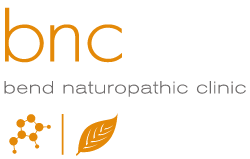Bioidentical Hormones – Who should take them?
Due to the popularity of bioidentical hormones, I have men and women from late teens to late seventies asking if the use of these substances is right for them. As with any treatment, we need to focus on what kind of outcome we are looking for.
Bioidentical hormones are useful for helping with symptoms of menopause, PMS, Polycystic Ovarian Syndrome, Endometriosis, Andropause (low hormones in males), Hypothyroidism, and Adrenal dsyfunction to name the most common.
An important concept to keep in mind is there are many other non-hormonal therapies that can help all of these symptoms. Sometimes these just aren’t enough to optimize quality of life and that is when bioidentical hormones can be most useful.
Menopausal women are the most common recipients of bioidentical hormones to manage sleeplessness, mood swings, hot flashes, night sweats, memory deficiency, fatigue and weight gain. Bioidentical hormones can sometimes help with bone protection and cardiovascular support, but typically this is not sufficient reason alone for bioidentical hormone use.
More men are using bioidentical hormone replacement when discovering testosterone and DHEA levels at low levels. Low levels of these hormones can cause fatigue, weight gain, mood swings and muscle mass reduction.
Any women who have a strong family history of breast cancer or have a personal history of breast cancer should think very hard about using any hormone therapy. This risk varies depending on the type of cancer, who had it, at what age it was discovered and the kind of health care maintained. Hormone use, natural or not will increase the risk of incidence and recurrance. The question is how much risk is increased? Now there are some instances where the need for quality of life trumps the risk involved. This needs to be discussed very thoughtfully with your Naturopath or other provider.


I’ve been on bio-identical hormones for 10 years starting at 50. I have a strong family history of breast cancer – sister (just diagnosed at age 57), mother (at age 71, still living and cancer free), maternal aunt (died from breast cancer at age 62). I have researched extensively and am still confused about remaining on them. Or if they are still helping me (A genetic counselor said they probably weren’t doing anything for me after this amount of time since I should be well past any menopause symptons). My family doctor recommends staying on them. I may decide to stop taking them and see how I feel..
Hello Jenny. Thank you for your comment. There is not a direct question for me to answer based on what you have mentioned here. Of course I cannot suggest what you should do about your prescribed medication without seeing you as a patient and obtaining a more thorough personal and family medical history including what bioidentical hormones you are taking. What I can say is that generally when my patients have a strong family history of breast cancer, I work with them to see what we can do to possibly reduce or eliminate the hormone use without compromising on their quality of life. I hope this helps. Feel free to call our office if you want more information. – In health, Dr. Karli
I have PCOS. I am 47 years old. How does bioidentical hormone therapy help PCOS symptoms? Do you offer HCG therapy as I have read that HCG has relieved some PCOS symptoms?
PCOS is typically associated with insulin resistance and a relative androgen excess. I sometimes use natural micronized progesterone and/or bi-est with PCOS if deemed appropriate by labs and other history. There are other non-hormonal approaches to PCOS that I use alone or in combination with bioidentical hormones if needed. It is true that weight loss can greatly help PCOS symptoms, but I do not use HCG in my practice. Feel free to call the office if you would like any more details. Thank you for your interest. In Health, Dr. Karli